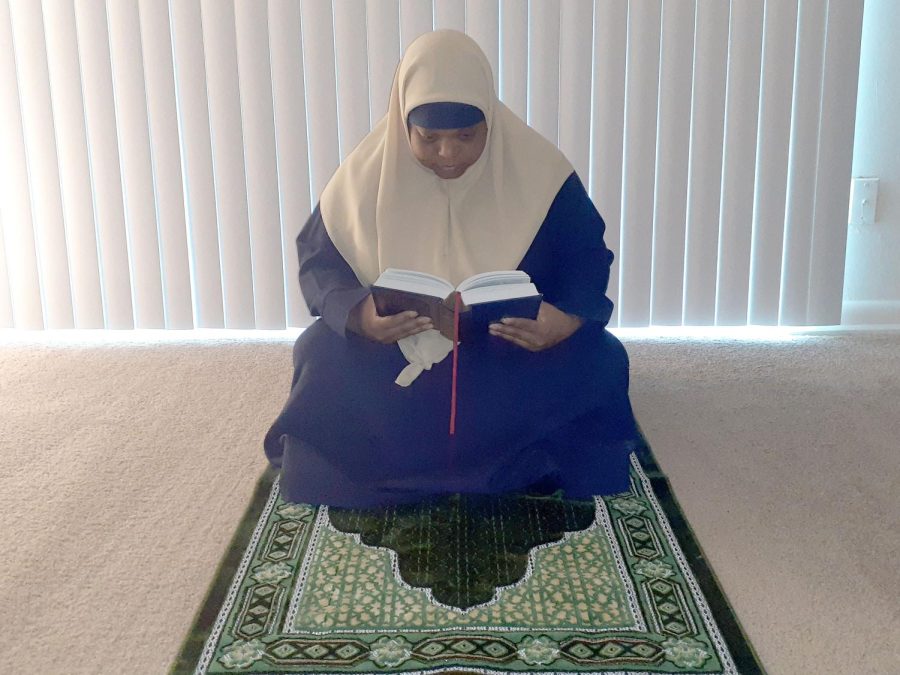This year Ramadan came in on the 22nd of March. Due to the way days are observed, fasting began after the pre-dawn prayer on the 23rd. Photo by Maliq Johnson-Williams.
Muslim students observe Ramadan
One of the five obligations of a Muslim, is to fast during the month of Ramadan. Muslims use the lunar calendar to determine the start of each month.
However, each new day starts at sunset. This year Ramadan came in on the 22nd of March. Due to the way days are observed, fasting began after the pre-dawn prayer on the 23rd. During the fast, Muslims are obligated to forgo a number of things including the consumption of food and water until the sun has set, coinciding with the evening prayer. They also increase in worship and self-reflection.
 Before sunrise, Muslims prepare for the fast with a meal called Suhur and break their fast with a meal called Iftar.
Before sunrise, Muslims prepare for the fast with a meal called Suhur and break their fast with a meal called Iftar.
After interviewing several Muslims on campus, it became evident that there are a few hardships that are not efficiently addressed at VSU.
The first concern was finding locations suitable for prayer and reflection. Muslims are required to preform five daily prayers in a clean space without imagery or distractions. Most students do not have access to their own private quarters because they share a dorm room or apartment.
“There isn’t really a space for us to pray. Especially when sharing a dorm with someone else,” Yassmine Nassam said.
The second largest concern was the hours of operation of the dining halls. When Muslims are eating Suhur, there is nothing open on campus.
“The cafe does not offer early morning breakfasts so students can’t eat anything before we start our fast,” Nassam said.
Hours of operation affect Iftar as well because all of the dining halls are closing and or running low on options.
The third concern was while there are certainly halal choices served, consistently identifying them can be challenging. This is due to vague labeling. There are times where most of the components of the menu contain ingredients that are not halal.
For example, one night one might be served dirty rice with a side of collard greens. Both can contain non- halal ingredients like pork. Unless it is clearly stated somewhere, discerning all ingredients of a dish can be a hassle. Side note, halal simply means permissible food.
Some potential solutions to the problems at hand are having pre-packaged meals which could be prepared by dining halls and passed out to students identifying as Muslim.
A student lead group/organization could give Muslims a place to congregate for prayer and meals together. Hani Abdi, a Muslim student attending VSU, wanted to start a club for Muslim students to achieve this goal.
“I want to start a group chat and club for Muslim students,” Abdi said.
Ramadan is most successful with the support of the community. Hopefully during the next semester, the Muslims of VSU can work with college officials to make a space more accommodating for their Islamic practices.
